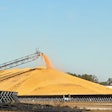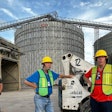
Many closely held or family businesses make the decision to incorporate for the positive benefits that a corporation provides. These benefits include the limits on personal liability afforded by a corporation and the potential for a corporation to survive a principal member's departure of the business by decision or their death, among other benefits. One of the requirements for incorporation in many states is the establishment of a board of directors.
Some company owners may look at this requirement as unnecessary and overreaching, and may put a “compliance” board in place — a board that exists to fulfill legal requirements, but has little impact on strategic decisions of the business. However, while a compliance board may give the owner a greater sense of control, there are downsides.
“Most entrepreneurs want to make a lot of money and to run the show," said Harvard Professor Noam Wasserman, Ph.D., in his book, "The Founders Dilemma."
Wasserman’s research indicates “it’s tough to do both. If you don’t figure out which matters most to you, you could end up being neither rich nor king.”
Additionally, many feed and grain businesses are cooperatives. Cooperatives require a board of directors to be selected from their membership. Our observation is that many of these boards operate similarly to boards of many closely held corporations in that the boards are selected from a pool of like-minded agricultural producers — many of whom may be close to the management team of the cooperative. Such cooperative boards have the potential for the same challenges compliance boards bring to a closely held private firm: a dearth of objective, candid strategic input and oversight.
While we have written about this topic previously in Feed & Grain, our discussion in this column delves deeper into the composition of boards of directors, specifically looking at how the right board members can benefit closely held corporations and cooperatives.
Types of boards
Edward Robson of Robson and Robson, a Pennsylvania-based law firm, writes about types of boards in his blog, "Prepare to Be Boarded!" Robson outlined four key types of boards:
Compliance board. At one end of the continuum is the compliance board, a non-functional board (Robson’s term) meant to meet legal requirements. In fact, it may be comprised of only the owner(s) of the closely held business. Non-functional means the board itself has essentially no material influence on the decisions of the organization and exists to satisfy legal requirements.
Insider board. One step away from a compliance board — as Robson states, “toward a functioning board,” is the insider board. This type of board may be established by the founder, but is designed to involve the family and senior management in big-picture planning. However, the owner(s) retain ultimate decision-making authority.
Inner circle board. Moving closer toward a more independent board, the inner circle board contains directors whom the founder(s)/owner(s) know well but bring perspective and knowledge different from and beyond that of the owner. This type of board can provide important guidance on growth and profitability and perhaps challenge the thinking of the owner(s) — but the owner retains the authority to make decisions.
Independent board. With this type of structure, there are outside/independent directors who have no tie (employment, familial or otherwise) to the company aside from their role as directors. These directors' goal is to be more objective and less differential to ownership than members of the previously mentioned types of boards. They expect their input to be considered and acted upon, and the owner(s) may not retain full decision-making authority as they would with the other board structures.
Case for an independent board
Pinion Consulting, a food and agricultural consulting firm, outlines the ladder of professionalism of the closely held firm from “survival” to “institutional.” This "ladder" describes the firm’s growth toward more formal governance to include the addition of new skill sets as well as planning for generational transitions (Figure 1).
 Pinion LLC
Pinion LLC
From an initial startup where the feed and grain business focuses on “survival” and securing financial stability, the firm progresses to “stability” and growth in net worth. Pinion describes the next stage beyond stability as a move to a more professional business, where non-family management, policies and formalized roles are introduced. The ladder culminates in an institutional business, with potentially a mix of family and non-family shareholders, the addition of outside managers, the board of directors is the governing body, and the board hires and evaluates the CEO (which may or may not be the founder of the business).
An important point for consideration is where the family/closely held corporation sees itself in terms of emotion versus logic. In reality, almost all firms operate somewhere between these two extremes. However, if your closely held business has grown in size (measured by sales, profitability, assets, number of employees, among other measures), and complexity, it may be time to consider a more professional governance structure.
Of course, such a decision is heavily dependent on some consensus among key family or business members to explore a more professional approach to business governance.
Benefits of an independent board
With the dependence on consensus in mind, we have outlined some key points to consider and ways to start the process.
Robson states “good business decisions can’t be based on fleeting passions and grievances. They should be grounded in a rational and impersonal assessment of the situation. An (independent) board can help ensure that such an assessment is the norm.”
Yes, but this is easier said than done within the confines of the closely held feed and grain business or agricultural cooperative.
“One can’t flip a switch and instantly separate business from emotion,” said Robson. “But a board of directors is tremendously helpful in creating that separation. A healthy separation between closely held companies and their owners reminds owners they are not their companies, and vice versa.”
Another important reason to consider an outside board is to broaden access to expertise. What areas of the business/industry do family members cover well? Where are the expertise gaps that external directors could fill? Perhaps someone with deep customer insights would add value or someone with extensive technical knowledge or policy/regulatory knowledge or simply someone who "knows business" in an entirely different industry? The point is to bring a collection of diverse perspectives together that provides a rich base of insights to draw from as the firm sets its strategy for the future.
Some owner/managers may still have doubts and perceive drawbacks of installing an independent board. With proper planning, many concerns can be addressed (and this is where it is imperative that a competent attorney be engaged in the process and possibly a consultant with expertise in this area). Robson posits that owner(s) who fear giving up control of their business can maintain control as long as they are the controlling shareholders.
Owner(s) who are afraid of sharing confidential information with their now independent board can have directors sign non-disclosure agreements. Owners who fear they will be made to waste time on the formalities of having a board can bring in a co-worker to compile agendas and materials and take meeting notes. Finally, Robson states “owners who fear they’d have to waste money on compensating directors can provide equity (rather than cash compensation) to their directors — and hopefully the directors create the kind of value that dwarfs their compensation.”
Food for thought — and possible action
The decision to consider an independent board is not to be taken without thoughtful discussion and assent from most or all members of the closely held corporation. However, there can certainly be benefits to the firm in making this decision and we hope we have given you good “food for thought,” and possible action.
Action to move in this direction includes discussion of the topic among those involved personally in the firm and/or ownership. Many closely held/family-based businesses find that a consultant can assist in these sometimes difficult discussions. If the decision is to move in this direction, then it is also important to work with an attorney well-versed in these types of dealings.
Our metaphor would be your feed and grain business can benefit from “hybrid vigor,” the scientific principle that the offspring of genetically different parents (the owners combined with the independent outsiders who are board members) exhibits increased vigor, yield and general health – which translates to improved business growth and profitability.
Dr. John Foltz is professor emeritus, The Ohio State University, Columbus, Ohio, and dean emeritus, College of Agricultural and Life Sciences and professor, University of Idaho, Moscow, Idaho. Lance Woodbury is a principal with Pinion (formerly KCoe Isom LLP), a food and agricultural consulting firm. Dr. Jay Akridge is Trustee Chair in Teaching and Learning Excellence and Professor, Department of Agricultural Economics, Purdue University, West Lafayette, Indiana.



















